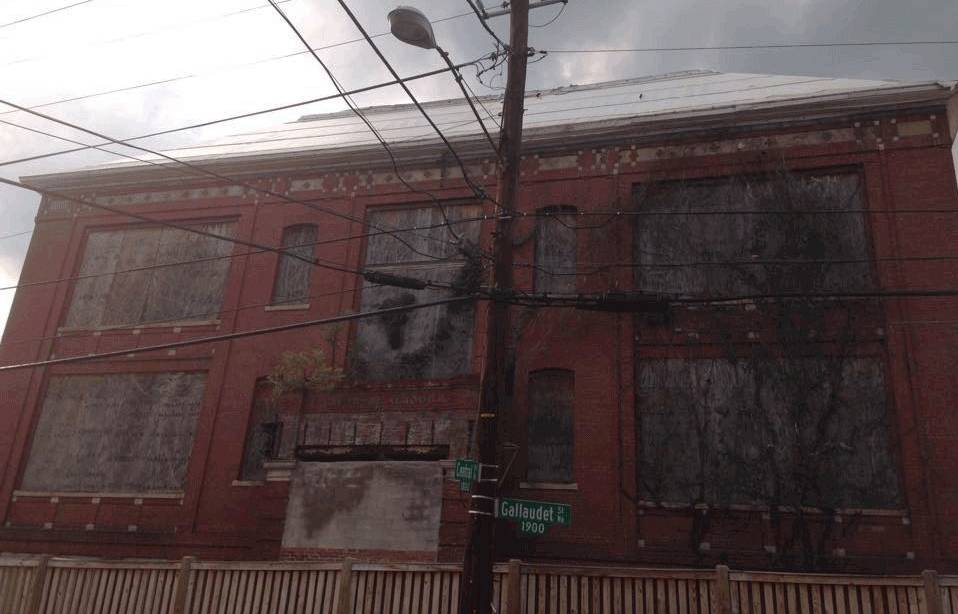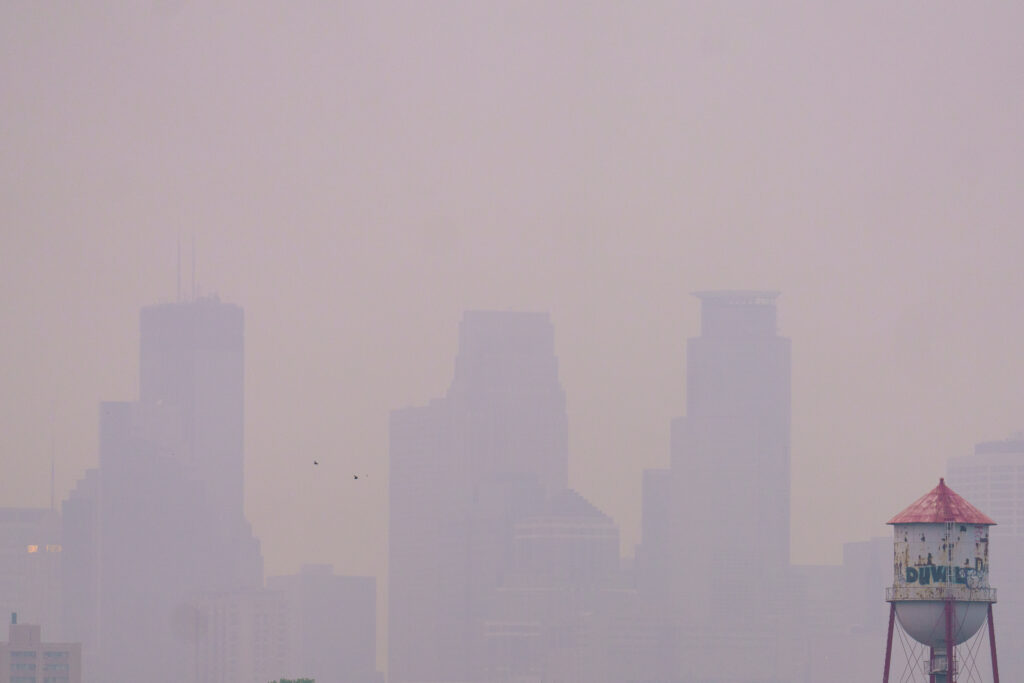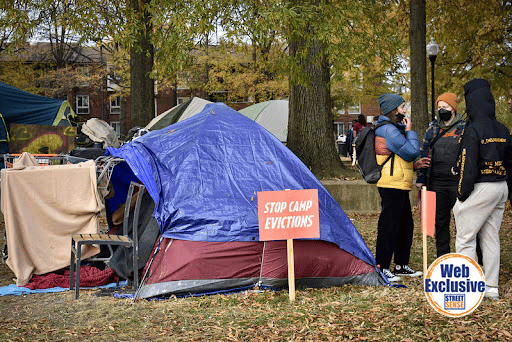When you type “Ivy City DC” into Apple Maps, you’re sent to a parking lot adjacent to Alexander Crummell School. Three years ago, Street Sense reported that the same school and parking lot were at risk of becoming a bus depot. Had the plan that was developed during the Grey administration been accepted, the current GPS location for “Ivy City DC” would be rows of buses.
The landscape of Ivy City is very different from the highways and grey stone office buildings that are just minutes away. Ivy City occupies less than 2 square miles of the District’s Ward 5, with the bulk of that land serving as parking lots for the government’s snow response vehicles, parking enforcement vehicles, and school buses. The streets of Ivy City are worn and somewhat sandy, perhaps from salt trucks or maybe from overuse. Children race down the road on scooters and point out Crummell School, almost immediately saying “Thats our school!”
Crummell School was named for Alexander Crummell, a clergyman, teacher, and orator who died in 1898. The school was built in 1911 for African American children and was the center of Ivy City until it was shut down in the early 1970s. It is now listed on the National Register of Historic Places.
Not only would the proposed bus parking lot have destroyed the school, the buses would have released significant levels of vehicle exhaust fumes into the neighborhood. Given the level of pollution from existing parking lots in Ivy City, Empower DC and the local Advisory Neighborhood Commission (ANC) fought back. Empower DC Executive Director Parisa Norouzi told Street Sense the District “did not follow its own rules,” when selecting Ivy City for the parking lot.
“Superior Court Judge Judith Macaluso found that city officials broke the law by not seeking input from the area’s advisory neighborhood commission and by circumventing a mandated environmental assessment” in 2012.
The city failed to properly take into account the pre-existing respiratory issues in the Ivy City community and how harmful additional bus fumes would be to residents. After legal action was taken by Empower DC and the local ANC, the plan for a parking lot was rejected.
“The city was trying to dump this [parking lot] on Ivy City, but the community fought back,” Norouzi said.
The victory of preventing the parking lot is just one step for Ivy City. For years, the community has expressed its need for a recreation center, according to Norouzi. Four years ago Empower DC made a short film about Crummell School featuring the residents of Ivy City. The issues outlined in the film are similar to the issues the city faces today. Residents of Ivy City have been vocally asking policymakers for a recreation center, but has “seen promises made and promises broken,” according to Norouzi.
Councilmember Mary Cheh (Ward 3) recommended that the District’s Fiscal Year 2015 budget include $1 million for the Ivy City streetscapes and $8.925 to build an Ivy City Recreation Center.
Councilmember Cheh told Street Sense that ultimately, the money was allocated for other purposes. If the land is to be developed, according to Cheh, it will most likely be a private developer that is required to use part of the land to benefit the community.
Norouzi fears that future development of Ivy City will result in displacement of the people who fought the hardest to improve the community. Her concern is that by the time the District builds a recreation center, the cost of living in Ivy City will have risen.
“Who will be able to afford ‘affordable housing?’ Who will be able to afford to live in Ivy City? [In 2000-2002] people displaced by gentrification migrated to Ivy City and Trinidad. So if that becomes less affordable, where will they go?” Norouzi said.
Norouzi believes a private/public development in Ivy City would not be beneficial to the community, and that developments of that nature often result in the community’s needs being placed behind the interests of developers.
On Saturday, June 13th, The Deputy Mayor’s Office for Planning and Economic Development (DMPED) hosted an “Our RFP” workshop. The workshop was to gain community input as the District decides how to develop city-owned land in the Shaw Neighborhood. The workshop was held prior to developer solicitation.
“Early engagement with the community will ensure that the public’s perspective and priorities are understood in conjunction with the District’s goals when crafting and issuing the RFP [Request for Proposal] for this District-owned parcel,” DMPED’s website states.
In addition, DMPED opened an online engagement forum to gain feedback from community members who were not able to attend the workshop. The third step of the Our RFP process is a follow-up meeting in July.
“We want to make sure we do this right, and make sure all eight Wards have a seat at the table and a hand in developing their neighborhoods,” Joaquin McPeek, Director of Communications at DMPED, told Street Sense.
The workshop was well attended, including members of all eight Wards and ANC commissioners. Although the land being discussed is in only one Ward, McPeek said people came wanting to understand how the new process works, and to have their voices heard. McPeek said the workshops reflect the new administration’s approach to community input, and that he was glad so many people attended to give their opinions.
Any future plans to develop Crummell School will have community input, according to McPeek.






